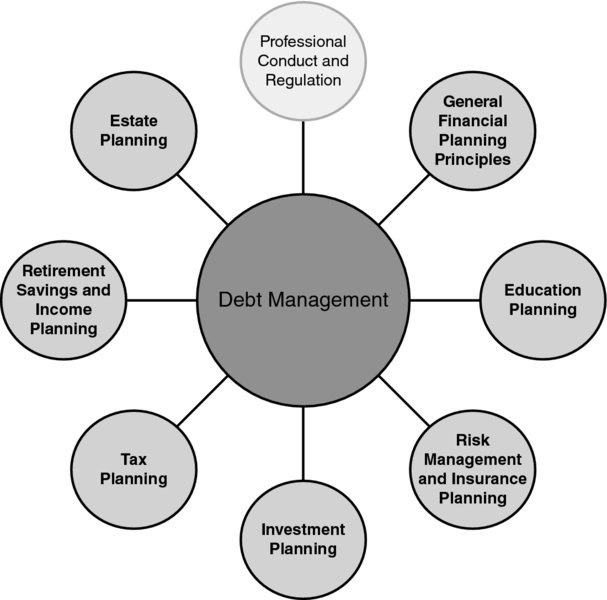CHAPTER 14 Debt Management
Joseph W. Goetz, PhD
University of Georgia
John E. Grable, PhD, CFP®
University of Georgia
CONNECTIONS DIAGRAM

Debt management is interconnected with nearly every other aspect of the financial planning process, particularly cash flow planning, tax planning, and retirement planning. It is imperative for financial planners who are practicing comprehensive financial planning to consider a client’s liabilities within the context of their overall financial plans. For example, allocating greater cash flow toward a mortgage may adversely affect a client’s overall financial plan if this results in less available cash flow to be allocated toward pre-tax retirement plans, and consequently, increased tax liability and loss of investment return. Conversely, allocating greater cash flow toward a mortgage may positively affect a client’s overall financial plan when this results in greater equity, and subsequently, the opportunity to refinance the mortgage into a loan with a substantially lower interest rate. The ability to accurately evaluate the financial and psychological impacts of reducing or increasing debt on a client’s probability of success in meeting short-term and long-term goals is a skill set that differentiates the top financial planners from the rest.
OVERVIEW
Optimal debt management is integral to the financial planning process. Helping clients ...
Get Financial Planning Competency Handbook, 2nd Edition now with the O’Reilly learning platform.
O’Reilly members experience books, live events, courses curated by job role, and more from O’Reilly and nearly 200 top publishers.

